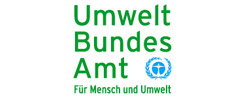Makers Are Pushing Back on Toxic-Toy Law
An article written by Joseph Pereira for The Wall Street Journal
05.03.2009 |The Wall Street Journal
By Joseph Pereira - Makers of children's products and charities that run second-hand shops are stuck with more than $1 billion of inventory they can't sell because of a new federal product-safety law, according to surveys by trade groups and the charities.
The goods, which have -- or are suspected of having -- illegal levels of lead or plastic-softening chemicals called phthalates, include everything from beach balls to second-hand clothes to brand-new all-terrain vehicles for children. The goods -- piled up in warehouses and storerooms -- will have to be incinerated or dumped, resulting in write-offs and disposal costs that the suppliers say they can ill afford.
 Chaparral Motorsports
Chaparral Motorsports Chaparral Motorsports stores dirt bikes banned under the new safety law.
In some cases, retailers such as Wal-Mart Store http://online.wsj.com/article/public/ quotes/main.html?type=djn&symbol= WMT Inc., Target http://online.wsj.com/ article/public/quotes/ main.htmltype=djn&symbol=tgt Corp. and Toys "R" Us Inc. have told suppliers to take back goods already shipped unless the products are tested and certified as meeting the tough new standards mandated by the Consumer Products Safety Improvement Act, which took effect Feb. 10. Lead is a well-established neurological toxin, and phthalates have been linked to developmental disorders.
Suppliers and retailers say they hadn't expected the law to apply to some products made before Feb. 10, based on a legal interpretation by the federal Consumer Product Safety Commission. But a federal court ruling last month, in response to a challenge by consumer groups, found that interpretation wasn't valid.
"We have millions of dollars worth of merchandise sitting in 30 40-foot-long trailers waiting to be hauled out to a landfill somewhere," says Michael Klein, president of Constructive Playthings Inc., a closely held Missouri toy maker. The banned products include beach balls, inflatable toy guitars and blow-up palm trees.
Local outposts of Goodwill Industries International are also "filling up trailers with the stuff," says Jim Gibbons, chief executive of the charitable group, which collects and distributes used clothes. The law affects clothing because lead is sometimes used in buttons, zippers, rhinestones and other embellishments.
Goodwill's Mr. Gibbons says its stores may have to destroy $170 million in merchandise. The Salvation Army say it will have $100 million in lost sales and disposal costs related to used goods.
The trade groups and charities have been lobbying for an exemption to enable them to sell the problem goods, saying the danger to consumers is minimal, but so far they have failed to get much congressional attention.
The Toy Industry Association estimates that more than $600 million in toys made illegal by the law are sitting in manufacturers' warehouses or have already been shipped to retailers. A trade group for small apparel makers in New York called the Coalition for Safe and Affordable Childrenswear says its members have a $500 million problem. And the California Fashion Association, which represents many Western clothes makers, puts their troubled inventories at $200 million.
The trade groups were reluctant to disclose the names of the companies affected or provide documentation in support of their estimates.
Less-obvious types of products are also affected. The Motorcycle Industry Council, which includes more than 300 makers of off-road vehicles, estimates the law will force the industry to dispose of about 50,000 motorized bikes and four-wheelers made especially for children aged six to 12. Their value: $125 million.
The vehicles have small amounts of lead in their handlebars and frames to prevent corrosion, says Paul Vitrano, general counsel to the trade group.
Kimberly Owen, who started a children's clothing business called Moonfly Kids Inc. about two years ago in Las Vegas, says about $4,000 of useless inventory -- clothes and storybooks -- sits in her garage. Her small-boutique customers canceled orders because she couldn't produce certificates showing the books and clothes had been tested by an independent laboratory, she says. She recently closed Moonfly and returned to her previous job as a real-estate agent.
Last month, Wal-Mart sent emails to some suppliers warning them that products they had shipped hadn't been tested for phthalates. The emails listed the products and said the suppliers would have to take back the goods if they weren't tested and certified.
Some of the small manufacturers that received the notice say they can't afford testing, which can cost up to $2,000 per production batch even if the entire batch is only 20 items.
Melissa O'Brien, a Wal-Mart spokeswoman, said that "it has been necessary for us to shift -- and in some cases remove -- inventory from our distribution centers, our stores and our shelves," because of a lack of safety certificates or because tests showed productrs don't comply with the new law. She declined to say how many products have been returned to suppliers.
Toys "R" Us has sent similar email notices to its suppliers, say two people familiar with the matter. A Toys "R" Us spokeswoman declined to comment on the emails or what the retailer plans to do with the untested inventory.
Target http://online.wsj.com/article/public/quotes/main.html?type=djn&symbol =tgt Corp. is also conducting reviews of its inventory, according to suppliers. One Target supplier said the retailer had returned products for testing that had been shipped months ago. A Target spokeswoman said the retailer takes "swift action to pull the products from our shelves" when they are found to be noncompliant.
References:
http://online.wsj.com/article/SB123621357629835121.html?mod=todays_us_ marketplace
































